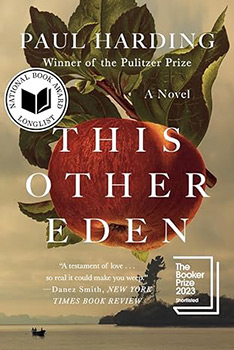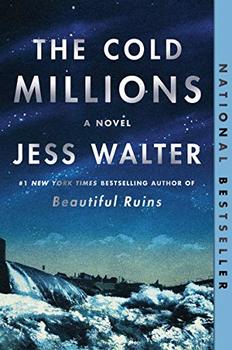Summary | Excerpt | Discuss | Reviews | Beyond the book | Read-Alikes | Genres & Themes | Author Bio

The New York Times bestselling author of the celebrated A Land More Kind Than Home and This Dark Road to Mercy returns with this eagerly awaited new novel, set in the Appalachian foothills of North Carolina in 1929 and inspired by actual events.
The chronicle of an ordinary woman's struggle for dignity and her rights in a textile mill, The Last Ballad is a moving tale of courage in the face of oppression and injustice, with the emotional power of Ron Rash's Serena, Dennis Lehane's The Given Day, and the unforgettable films Norma Rae and Silkwood.
Twelve times a week, twenty-eight-year-old Ella May Wiggins makes the two-mile trek to and from her job on the night shift at American Mill No. 2 in Bessemer City, North Carolina. The insular community considers the mill's owners - the newly arrived Goldberg brothers - white but not American and expects them to pay Ella May and other workers less because they toil alongside African Americans like Violet, Ella May's best friend. While the dirty, hazardous job at the mill earns Ella May a paltry nine dollars for seventy-two hours of work each week, it's the only opportunity she has. Her no-good husband, John, has run off again, and she must keep her four young children alive with whatever work she can find.
When the union leaflets begin circulating, Ella May has a taste of hope, a yearning for the better life the organizers promise. But the mill owners, backed by other nefarious forces, claim the union is nothing but a front for the Bolshevik menace sweeping across Europe. To maintain their control, the owners will use every means in their power, including bloodshed, to prevent workers from banding together. On the night of the county's biggest rally, Ella May, weighing the costs of her choice, makes up her mind to join the movement - a decision that will have lasting consequences for her children, her friends, her town - indeed all that she loves.
Seventy-five years later, Ella May's daughter Lilly, now an elderly woman, tells her nephew about his grandmother and the events that transformed their family. Illuminating the most painful corners of their history, she reveals, for the first time, the tragedy that befell Ella May after that fateful union meeting in 1929.
Intertwining myriad voices, Wiley Cash brings to life the heartbreak and bravery of the now forgotten struggle of the labor movement in early twentieth-century America - and pays tribute to the thousands of heroic women and men who risked their lives to win basic rights for all workers. Lyrical, heartbreaking, and haunting, this eloquent novel confirms Wiley Cash's place among our nation's finest writers.
Cash is southern, and he knows the south well, from dirt roads to piney woods, and he shines a compassionate light in both shacks and mansions. He's masterful at weaving disparate plot threads into a coherent, poignant, wise, and sensitive story. The best of southern literature probes the Fall, the loss of innocence. Here Cash goes beyond, and those who've marveled at his first two novels will marvel at the depth of pathos he mines from the struggles of Ella May, a hard-worn, hill-country woman, who only wanted to feed her children...continued
Full Review
(734 words)
This review is available to non-members for a limited time. For full access,
become a member today.
(Reviewed by Gary Presley).
 America prospered at the turn of the 20th century, but that prosperity wasn't reflected in working conditions or compensation for laborers. Many on the left felt the American Federation of Labor leadership was corrupt and began to support Eugene V. Debs' Socialist Party. There was then a further schism, created by those who felt Debs' party continued to ignore the most oppressed workers, and that allowed the Communist Party to step into the void. From that wing sprang the radical Industrial Workers of the World in 1905, a communist union.
America prospered at the turn of the 20th century, but that prosperity wasn't reflected in working conditions or compensation for laborers. Many on the left felt the American Federation of Labor leadership was corrupt and began to support Eugene V. Debs' Socialist Party. There was then a further schism, created by those who felt Debs' party continued to ignore the most oppressed workers, and that allowed the Communist Party to step into the void. From that wing sprang the radical Industrial Workers of the World in 1905, a communist union.
Unions, socialist or communist, found no better place to fight for their causes than within the cruel industrial engine of manufacturing, mills, and mines. The horrid conditions explored...
This "beyond the book" feature is available to non-members for a limited time. Join today for full access.

If you liked The Last Ballad, try these:

by Paul Harding
Published 2023
From the Pulitzer Prize–winning author of Tinkers, a novel inspired by the true story of Malaga Island, an isolated island off the coast of Maine that became one of the first racially integrated towns in the Northeast.

by Jess Walter
Published 2021
The author of the #1 New York Times bestseller Beautiful Ruins delivers another "literary miracle" (NPR) - a propulsive, richly entertaining novel about two adventure-seeking brothers, the enemies who threaten them, and the women who reveal to them an unjust world on the brink of upheaval.